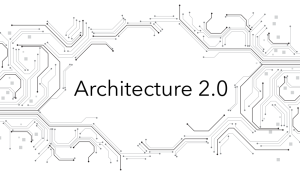
by Emery Berger and Ben Zorn on Apr 23, 2024 | Tags: Computer Systems, deep neural networks, Machine Learning, Programming
A Tale of Two Softwares: In a world where AI is revolutionizing the way we interact with technology, a new type of software emerges: AI Software (AISW). But with great power comes great responsibility, and the systems research community must rise to the challenge of ensuring AISW is as robust, secure, and safe as its predecessor, Plain Old Software (POSW).
Read more...

by Kelly Shaw and Natalie Enright-Jerger on Apr 19, 2024 | Tags: Diversity, Inclusion, Women in Computing
On behalf of the Women in Computer Architecture (WICARCH) organizing committee, we’re pleased to announce two new initiatives geared to foster in-person gatherings of members. One of the primary goals of WICARCH is to create a sense of community among women computer...
Read more...
by Raghav Pothukuchi and Abhishek Bhattacharjee on Jan 22, 2024 | Tags: BCI, Brain-computer interfaces
Brain-computer interfaces (BCIs) connect the brain with computers and machines, forging a link between natural intelligence and artificial intelligence (AI). In doing so, they enable the use of computational platforms to treat debilitating neurological diseases like...
Read more...
by Mingyu Gao on Dec 27, 2023 | Picture generated by Microsoft Designer powered by DALL·E 3 Computations on sparse matrices/tensors in scientific computing, graph processing, and deep learning are one of the earliest and most studied algorithms for hardware acceleration. Such sparse...
Read more...

by Siddharth Garg, Brian Hirano, Jenny Huang, Yingyan (Celine) Lin, Vijay Janapa Reddi, Tushar Krishna, Srivatsan Krishnan, Benjamin Lee, Jason Lowe-Power, Martin Maas, Shvetank Prakash, Matthew D. Sinclair, Srinivas Sridharan, Amir Yazdanbakhsh, Jason Yik, Cliff Young on Dec 20, 2023 | Tags: Benchmarks, Competitions, Datasets, Leaderboards, Machine Learning, ML4Sys, MLSys
Benchmarks, Competitions, Datasets, Leaderboards, Machine Learning, ML4Sys, MLSys
Read more...
by Zixuan Wang and Jishen Zhao on Dec 8, 2023 | Image generated by DALL·E through ChatGPT. Heterogeneous Memory: A Journey Toward Performance The heterogeneous memory system is pivotal in today’s computer architecture. By integrating various types of memory for specific tasks and organizing them as a hierarchy, the...
Read more...
by Thaleia Dimitra Doudali on Nov 27, 2023 | Tags: Cloud computing, Forecasting, Machine Learning, Resource Management
How many times have you tried setting up a virtual machine, container pods or serveless functions in the cloud and wondered how many resources (cores, memory etc.) to configure? In practice, users request more resources than actually end up using. This is a known...
Read more...

by CA SA on Nov 8, 2023 | Tags: CASA, Mentoring
Program Overview The Computer Architecture Long-term Mentorship Program (CALM) was launched by some committee members from Computer Architecture Student Association (CASA) in 2021. The program aims to help junior researchers establish and maintain a long-term...
Read more...
by Babak Falsafi on Oct 26, 2023 | Our executive committee started in July of 2019. Our usual mandate included launching, delivering, and reporting on initiatives based on three pillars in SIGARCH’s mission statement – technical exchange, talent development and recognition, and outreach. These...
Read more...

by Boris Grot and Dmitrii Ustiugov on Oct 5, 2023 | Tags: Cloud computing, Serverless
Serverless 101 Serverless computing has emerged as a pivotal development and deployment paradigm for cloud computing. According to a recent analyst report, over 50% of companies that use cloud services have adopted serverless computing. Usage of serverless...
Read more...






